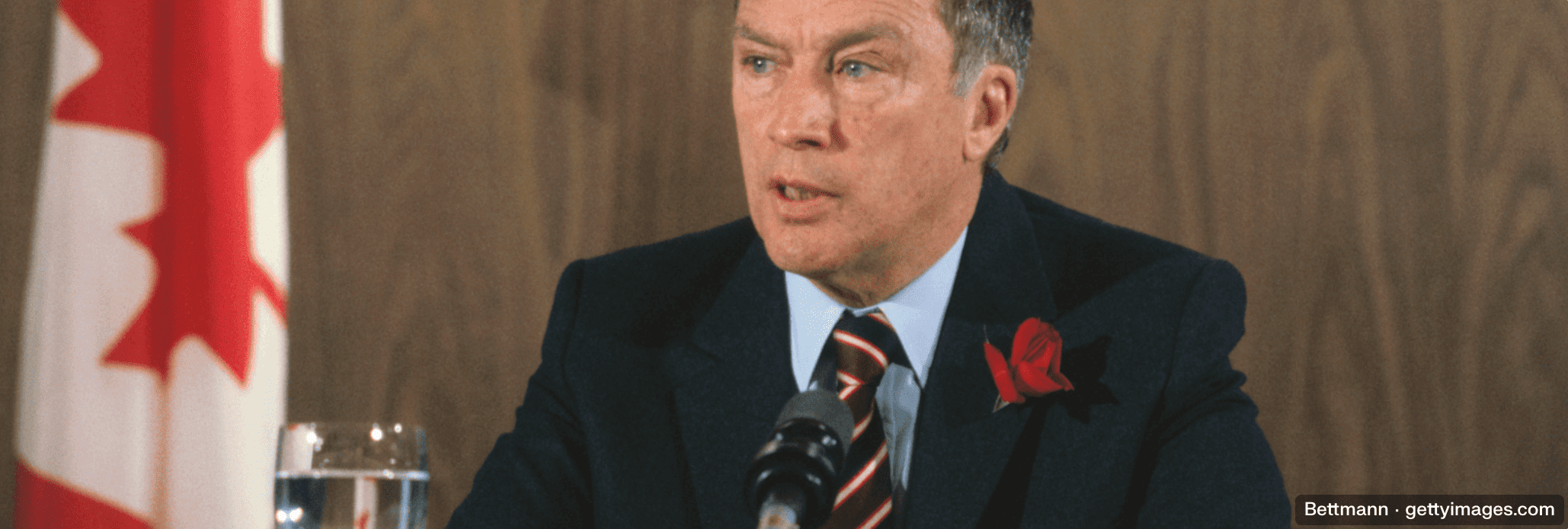
Trudeau’s 1984 Resignation Reasons
Pierre Trudeau, one of Canada’s most influential Prime Ministers, resigned in 1984 after serving 15 years in office.
He cited personal priorities and mounting political pressures as key reasons for his decision to step away from leadership.
At the time, Trudeau faced declining popularity, fueled by economic challenges such as high unemployment and a struggling economy.
Additionally, dissatisfaction grew within his Liberal Party, creating further tension and prompting calls for change in the party’s leadership.
Trudeau’s resignation marked the end of a transformative era in Canadian politics, leaving behind a complex and lasting legacy.
The Snowstorm Walk Decision
Pierre Trudeau’s famous “walk in the snow” on February 28, 1984, has become a legendary moment in Canadian political history. While often portrayed as a spontaneous decision, Trudeau’s resignation was carefully planned1. He chose to announce it on February 29, a leap year, adding to the mystique of the event1. The snowstorm walk served as a powerful metaphor for Trudeau’s contemplative decision-making process, though some historians question whether it actually occurred2.
- The announcement surprised many Canadians and had immediate effects:
The “walk in the snow” has since entered Canadian political lexicon, referring to moments of profound career reflection and decision-making5.
Economic Struggles and Public Dissatisfaction
Pierre Trudeau’s resignation occurred during a period of significant economic challenges that weakened public confidence in his leadership.1
Canada faced record-high unemployment rates, peaking at 13% in the early 1980s, further straining the nation’s economy.2
Additionally, substantial budget deficits and slower economic recovery compared to the United States fueled widespread public frustration.
By 1984, unemployment remained at a record high, deepening dissatisfaction and eroding support for Trudeau’s Liberal Party.
These struggles paved the way for the Progressive Conservatives, led by Brian Mulroney, to gain momentum and challenge the Liberals.
Trudeau’s departure marked a turning point, signaling the end of an era and the beginning of significant political change.
Impact of Quebec Sovereignty Movement
The Quebec sovereignty movement had significant impacts on Canadian politics and society, particularly during Pierre Trudeau’s tenure as Prime Minister. Trudeau’s primary objective was to combat Quebec separatism and preserve Canadian unity through a three-fold strategy: stimulating Canadian patriotism, portraying the United States as a potential threat, and accommodating Quebec as a unique component of Canada1. This approach aimed to generate support for a unified Canada among English-speaking Canadians while addressing Quebec’s concerns.The movement led to major constitutional developments, including the 1980 Quebec referendum on sovereignty-association, which was rejected by 60% of voters23. This defeat paved the way for subsequent constitutional negotiations, such as the Meech Lake Accord and the Charlottetown Accord, which attempted to address Quebec’s demands for greater autonomy within the Canadian federation43. The sovereignty movement also influenced Trudeau’s push for a new Canadian constitution following the 1980 referendum, culminating in the patriation of the Constitution in 1982 and the creation of the Canadian Charter of Rights and Freedoms5.
Personal Struggles Behind the Choice
Pierre Trudeau’s decision to resign in 1984 was influenced by personal factors, particularly his role as a single father. Following his separation from his wife Margaret, Trudeau assumed sole custody of their three sons1. This shift in family dynamics significantly impacted his priorities, as he sought to balance his responsibilities as Prime Minister with his commitment to raising his children.
- Trudeau’s focus on family life contributed to his decision to step back from public office1
- The demands of single parenthood likely influenced his perspective on continuing in a high-pressure political role
- His famous statement, “Today is the first day of the rest of my life,” hinted at a desire for a new chapter focused on personal rather than public pursuits1
These personal considerations, combined with the political and economic pressures he faced, ultimately led Trudeau to conclude that it was time for new leadership to address Canada’s challenges1.
